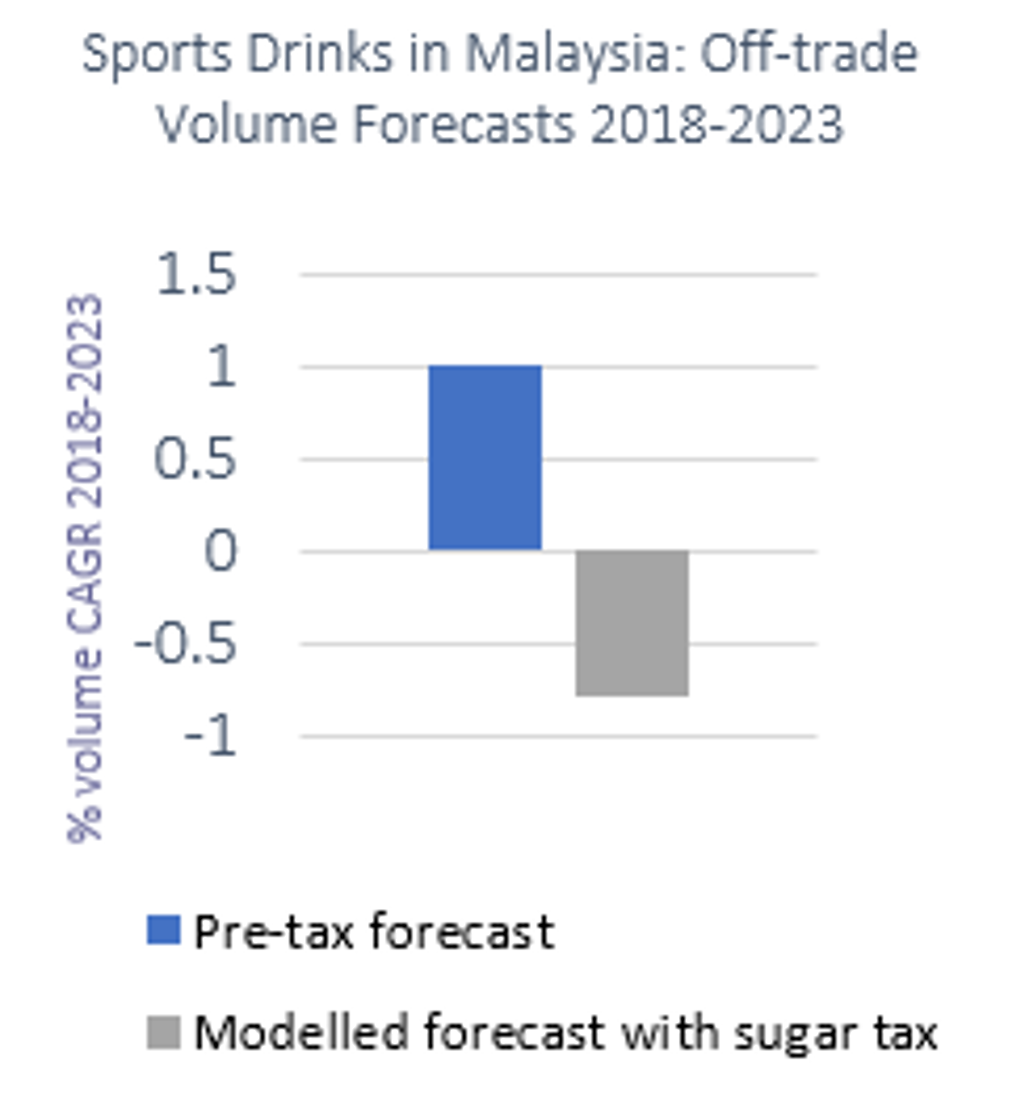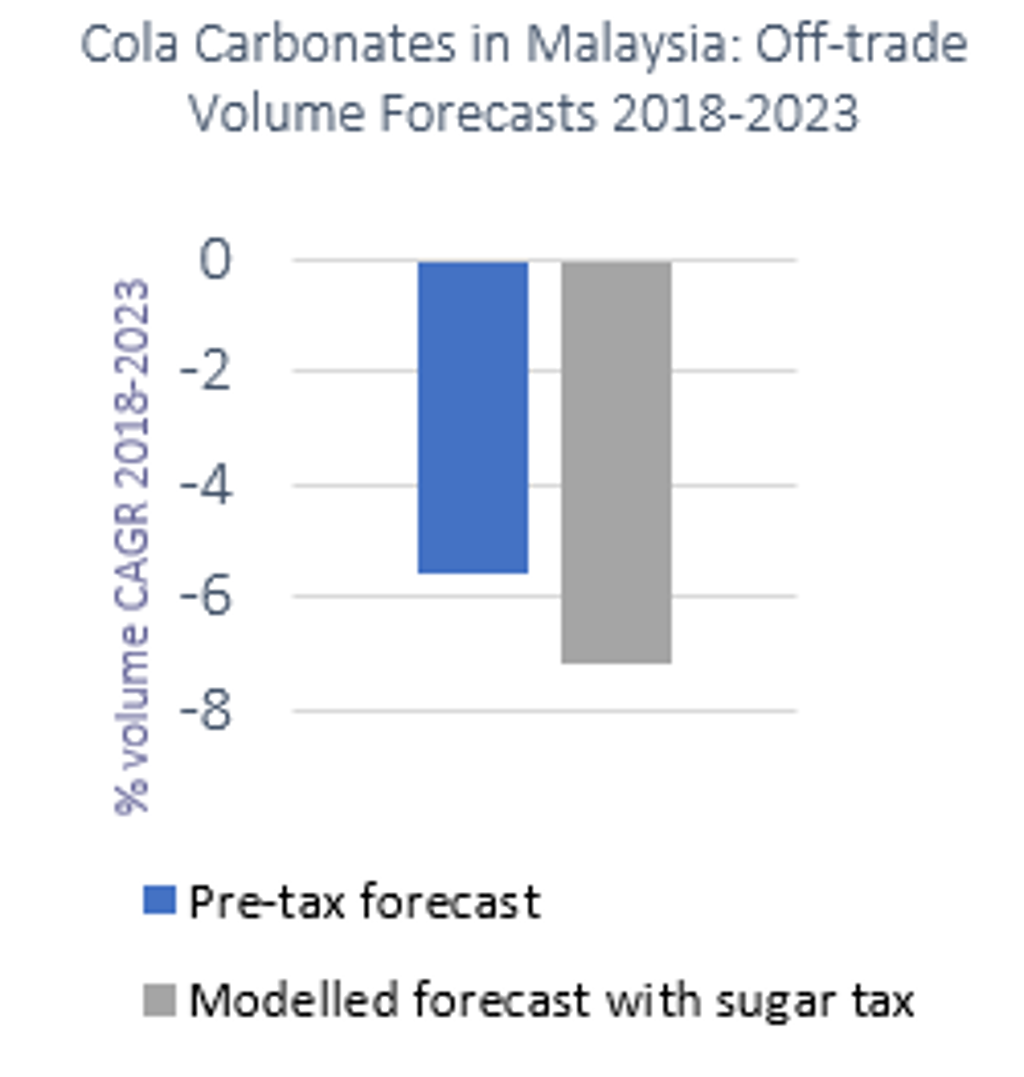With growing concerns about obesity, in November 2018 the Malaysian government announced its plan to implement a sugar tax on sweetened packaged beverages beginning July 2019. The sugar tax of 40 sen per litre will impact categories such as carbonates and sports drinks with more than 5g of sugar per 100ml.
Impact on consumers
The price hike is set to result in consumers reducing their consumption, impacting the performance of soft drinks in 2019. The modelled 2018-2023 forecast volume CAGR for sports drinks in retail is set to decline by 1%, compared to the pre-tax forecast of 1% growth.
Similarly, cola carbonates in retail are set to record a declining 7% volume CAGR, compared to pre-tax forecast CAGR decline of 5%. In order to minimise the tax burden, healthier variants of sports drinks like 100 Plus and carbonates like Coca-Cola are set to grow, providing consumers with a wider range of choices.


Response of manufacturers
Since the announcement of the sugar tax, beverage manufacturers have made plans to reduce sugar content as well as launch smaller pack sizes prior to its implementation. Fraser & Neave is set to reformulate 70% of its products, such as F&N Lychee Pear Less Sugar and Seasons Apple Pomegranate Less Sugar.
Besides reformulation, the company allocated USD7.3 million in capital investment to develop new products to be produced from October 2019. Whether these healthier beverages are able to boost volume sales is heavily dependent on their ability to appeal to consumer tastes as well as improving consumer awareness of their benefits.
Will sugar tax in Malaysia lead to lower sugar consumption?
By 2023, it is expected that the retail volume of cola carbonates could potentially decline by more than nine million litres and the figure for sports drinks could be 21 million litres lower than it would have been without the sugar tax.
Nevertheless, it is still too early to comment on whether this will lead to a reduction in sugar consumption, especially with the widespread availability of unpackaged drinks in foodservice channels, including coffee shops and bubble tea outlets, which are not due to be taxed for the time being. Furthermore, local consumers have a strong preference for sweet drinks such as coffee and tea. As such, a sugar tax alone is unlikely to be sufficient to reduce obesity. Other complementary measures could include consumer education through nutritional labelling as well as incentives for foodservice owners to reduce sugar content in their unpackaged drinks.
